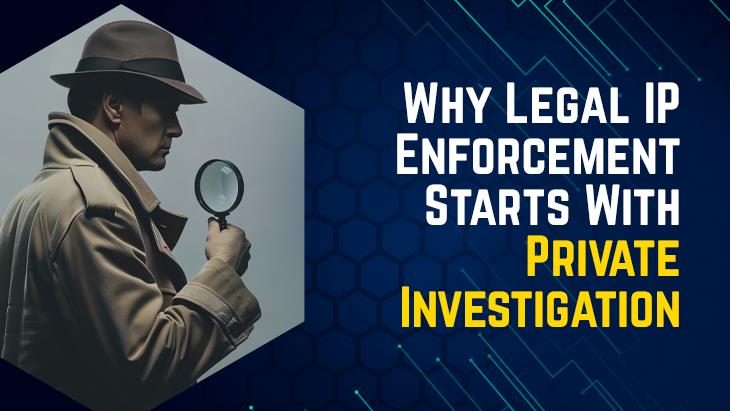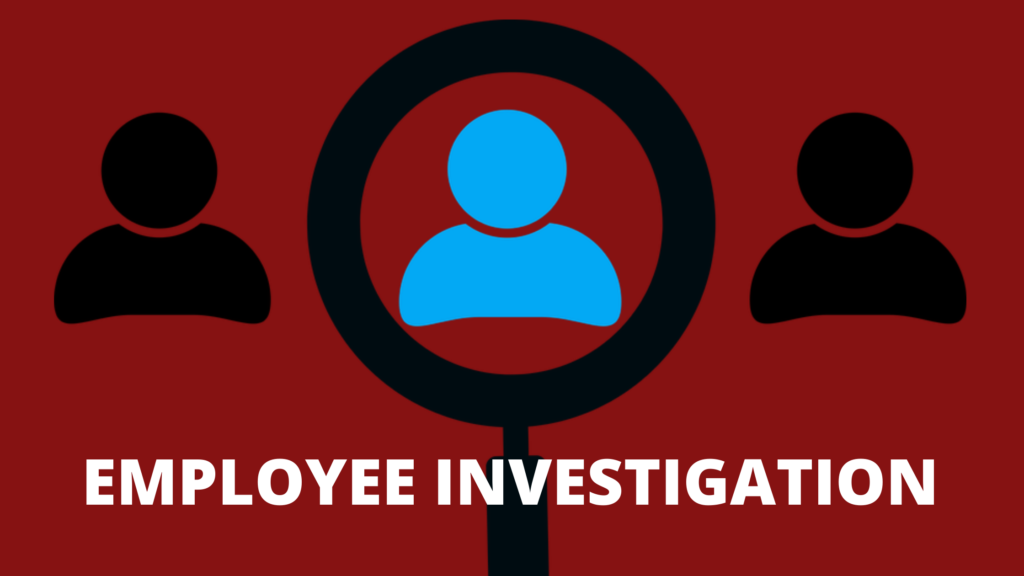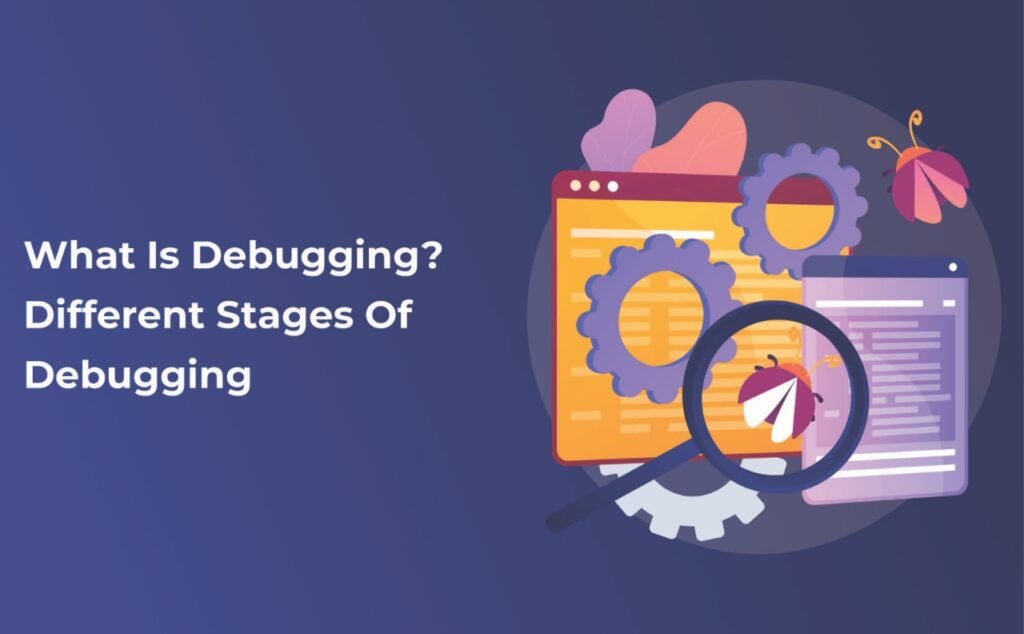Among a company’s most precious assets in the hyperconnected, digital world of today is intellectual property (IP). Whether it’s a software formula, a distinctive logo, a patented idea, or a trade secret, intellectual property is the basis of competitive advantage and brand identification. Though very valuable, intellectual property is also quite susceptible to misuse, counterfeiting, and theft.
Many companies react right away to legal action when they believe IP infringement or piracy exists. Actually, though, good legal IP enforcement nearly always starts with a private investigation. Legal plans lack the force required to succeed in court or even in settlement negotiations without strong proof. In this blog, we’ll discuss– why private investigation is the first step in IP enforcement and how it helps businesses to properly defend their rights.
Understanding the Role of Private Investigation in IP Cases
In the context of IP infringement, a private investigation is the methodical, covert, lawful gathering of evidence concerning alleged intellectual property use. This could call for industrial espionage, digital piracy, brand or design unapproved use, or counterfeit manufacture. Operating under tight ethical and legal constraints, these researchers guarantee that the gathered evidence will be admitted in court.
Law enforcement authorities can act in serious or large-scale crimes, but they usually lack the means or capacity to prosecute every IP claim—especially those involving cross-border concerns or complex corporate theft. Private detective agency helps to close this void.
1. Gathering Evidence that Holds Up in Court
Proof is essentially what drives IP enforcement. Neither a court nor an arbitrator will act on suspicion. Hard evidence—physical objects, digital logs, surveillance footage, domain ownership history, or witness testimony—that unequivocally indicates infringement has occurred matters.
Trained to gather such proof without breaking privacy rules or jeopardising the legal integrity of the case, private investigators follow They apply specifically designed tools and methods, including:
- Undercover investigations—that is, buying fake goods—
- Manufacturing or distribution facility surveillance
- Digital piracy or online infringement: internet monitoring
- Forensic investigation of servers and computers
- Audits of trademark use in the market
When lawyers develop a case, all of this data becomes critical, so the basis layer of the whole legal process is the private investigator.
2. Identifying the Source of the Infringement
Many times, businesses know their intellectual property is being used, but they have no idea who is responsible.
Consider the situation with fake products marketed online. Although imitation goods may be found on many e-commerce sites, the brand owner can come across them behind aliases or shell firms. Pursuits of legal remedies are almost impossible without knowing the actual source of manufacture or distribution.
Private investigators can probe closely at these unidentified sources. To locate the source of the infringement, they can follow domain ownership records, track supply chains, name bank accounts, and even deal with foreign relationships. What seems to be a little eBay vendor could be part of a huge worldwide counterfeiting system.
3. Preventing Ongoing Damage
Cases involving IP infringement depend critically on time. Whether it’s lost income, brand degradation, or erosion of consumer confidence, a firm suffers more the longer it waits to act.
Private inquiry lets businesses act quickly. While court cases can last months or years, a private investigator can begin compiling information in a few days. For writing cease-and-desist letters, this can be absolutely vital.
- Making temporary restraining orders
- Stopping distribution under customs enforcement or digital takedowns
- Notifying law enforcement or regulatory bodies
Early research can also reveal the scope of the problem, thereby enabling companies to know if they are dealing with a little copycat or a full-scale worldwide piracy network.
4. Support International IP Enforcement
Theft of intellectual property is becoming global. A modest American company might find their patented design being produced in China, sold via Eastern Europe-hosted websites, and then transported worldwide.
Negotiating the global legal terrain is somewhat difficult. Depending on the jurisdiction, laws vary, and many local authorities delay action until they receive clear, tangible evidence. This is where the local knowledge of numerous private investigators and their global reach truly come into play. Many agencies can do covert investigations across borders by means of alliances or satellite offices abroad.
5. Improving Legislative Strategy
Although they are experts in the courtroom, lawyers argue effectively based on facts. A competent private investigator supports lawyers by giving any legal argument a factual foundation.
- Support assertions with reliable data.
- Create powerful stories for juries and judges.
- Test hypotheses to avoid any hazards before submitting.
- Knowing the degree of the financial loss will help you with settlement.
This cooperation between the investigator and legal counsel usually determines the outcome of a case. The difference between a dismissed lawsuit and a multi-million dollar verdict can be thorough research.
6. Preventive Measures and Brand Protection
Potential offenders think twice when word gets out that a corporation is diligent about safeguarding its intellectual property and employs experienced investigators to track offenders. It comes with repute. Strong and obvious enforcement discourages misuse, much as weak enforcement invites it.
Even if they sometimes lead to lawsuits, private investigations can help to safeguard brand protection or reputation. Companies make it very apparent that their intellectual property right is not for sale by fast spotting and reacting to infringers.
7. Save Time and Money in the Long Run
Litigation is costly, as is quite obvious. Legal bills, expert witnesses, court expenses—all of which quickly add up. More annoying is when companies show up before courts only to find they lack sufficient proof to move further.
Early private investigation investment can save thousands of dollars down the road. It helps direct the legal attack on winnable topics, clarifies whether a legal battle is worth fighting, and names the actual offenders. Sometimes researchers find data that results in a voluntary compliance or speedy settlement, therefore bypassing the court completely.
Final Thoughts
Intellectual property is the pulse of invention, branding, and corporate development—not only a theoretical legal idea. Conserving it calls for smart, proactive, and ready behaviour. Although judicial fights depend on lawyers, private investigators are your front-line scouts revealing the truth before a legal war starts.
Whether your company is a worldwide brand confronting widespread counterfeiting or a startup safeguarding a new product, your IP enforcement policy should always begin with a competent investigation. And at the core of that inquiry is a seasoned, skilled private detective agency adept in legally, rapidly, and discreetly locating the required answers. Protecting your intellectual property is about investigative understanding rather than only legal strength in a society when ideas are currency.



